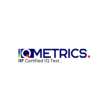What Were IQ Tests Originally Used for?
IQ Test Online

Introduction
The fascinating records of IQ assessments strain back to the overdue nineteenth and early 20th centuries. These checks emerged as a way to degree a character's cognitive capabilities, offering insights into their intelligence and potential. As we explore the genesis and improvement of IQ assessments, we can delve into their authentic purpose, evaluate their impact on schooling, and speak about the various criticisms and moral considerations surrounding them.
The Genesis of IQ Tests
Alfred Binet and the Binet-Simon Scale
The birth of IQ tests can be attributed to the pioneering work of French psychologist Alfred Binet. In 1905, Binet, along with his collaborator Theodore Simon, advanced the Binet-Simon Scale, aiming to become aware of youngsters who wished for additional academic help. This groundbreaking scale evaluated children's intellectual competencies via a chain of obligations, assessing their reasoning, hassle-fixing competencies, memory, and attention span.
Early Uses of IQ Tests in France
Originally, IQ checks had been designed to perceive kids with intellectual disabilities or studying problems. By comparing a character's performance on the Binet-Simon Scale to the common performance of children of the same age, Binet and Simon sought to measure a person's mental age. This concept allowed for the identity of youngsters who were developmentally behind schedule in contrast to their friends.
IQ exams quickly gained traction in France as a way of determining suitable instructional interventions for youngsters. They helped educators tailor instruction to fulfil each scholar's wishes, offering centred assistance to folks who required it.
The Adoption and Adaptation of IQ Tests
Lewis Terman and the Stanford-Binet Intelligence Scales
The tremendous adoption of IQ assessments beyond France may be attributed to American psychologist Lewis Terman. In 1916, Terman modified the Binet-Simon Scale and delivered the Stanford-Binet Intelligence Scale in the United States. Terman's adaptation expanded the age range and improved the scoring device, making it more accessible and applicable to a broader populace.
The Stanford-Binet Intelligence Scales fast became the gold fashionable for IQ testing in the United States, presenting a comprehensive assessment of a man or woman's cognitive abilities. The scale measured verbal reasoning, summary questioning, memory, and other factors of intelligence, assigning an intelligence quotient (IQ) rating as an illustration of a person's intelligence relative to their friends.
The Wechsler IQ Tests
In the mid-20th century, David Wechsler revolutionized IQ trying out along with his development of the Wechsler Adult Intelligence Scale (WAIS) and the Wechsler Intelligence Scale for Children (WISC). Wechsler's assessments introduced new elements, inclusive of performance-based total tasks, which supplied a greater comprehensive picture of a person's cognitive capabilities. These tests additionally integrated separate scale ratings for specific elements of intelligence, making an allowance for a nuanced assessment.
The Role of IQ Tests in Education and Beyond
Identifying Learning Disabilities and Special Education
One of the initial functions of IQ tests was to perceive children with gaining knowledge of disabilities or unique instructional desires. By assessing a man or woman's cognitive skills, instructors and professionals may want to determine appropriate interventions and help strategies for college kids. IQ checks helped form the field of special education, allowing educators to cater to the precise desires of students with intellectual disabilities or getting to know difficulties.
Social Mobility and IQ Testing
IQ exams have been also visible as equipment for predicting a man or woman's ability for academic and professional achievement. In the beyond, IQ ratings have been considered strong indicators of highbrow capacity, leading to possibilities for social mobility. However, the relationship between IQ scores and lengthy-time period outcomes has been a situation of discussion, with a few arguing that different elements, along with socioeconomic heritage and get right of entry to to assets, play sizable roles.
Criticisms and Ethical Considerations of IQ Tests
Cultural Bias and IQ Testing
One of the most continual criticisms of IQ exams is their capability and cultural bias. Traditional IQ checks had been developed based totally at the experiences and cultural references of a particular populace, frequently favouring individuals from positive cultural backgrounds. This bias can lead to erroneous exams, disadvantaging people from diverse cultural backgrounds who might also have one-of-a-kind approaches of trouble-solving or perceiving intelligence.
Limitations of IQ Tests
While IQ tests provide precious insights into an individual's cognitive abilities, they've inherent barriers. IQ checks more often than not measure certain components of intelligence, consisting of cognitive potential and trouble-fixing skills, while neglecting other precious dimensions, which include emotional intelligence or creativity. Additionally, IQ tests may be inspired by using outside elements, including taking a look at tension, which may impact a character's overall performance and skew the effects.
Ethical Considerations in IQ Testing
IQ trying out increases ethical issues associated with labelling and stigmatization. The use of IQ checks to categorize people into "clever" or "much less wise" companies has the potential to perpetuate stereotypes and prevent personal development. It is vital to apply IQ assessments as gear for knowledge of an individual's cognitive talents as opposed to defining their whole well-being or potential.
Conclusion
IQ tests have a rich and complex history, originating from the work of Alfred Binet in France and evolving into the widely used checks we recognize today. Originally meant to discover children in need of educational assistance, IQ assessments gained popularity and improved their scope through the years. They played a widespread position in shaping education and helping people with learning problems.
However, it is important to significantly evaluate the function of IQ assessments and not forget their barriers and ability biases. Cultural bias, obstacles in measuring distinctive dimensions of intelligence, and ethical concerns surrounding labelling and stigmatization require energetic mirrored images and ongoing upgrades in trying out methodologies.
While IQ assessments have performed a pivotal role in know-how cognitive capabilities, it's miles crucial to view intelligence as a multifaceted concept that encompasses more than what conventional IQ checks can measure. By acknowledging the historical context, obstacles, and moral issues, we can try for a more holistic know-how of intelligence and foster inclusive instructional practices that cater to the diverse needs of all people.
As we pass ahead, it's miles important to not forget opportunity measures of intelligence, embrace a boom attitude, and create educational structures that price and nurture a wide variety of talents and capabilities. Through ongoing studies, communication, and enhancements in evaluation practices, we can retain to refine our information of human intelligence and help the improvement and fulfillment of people truthfully and equitably.
About the Creator
IQ Metrics
IQMetrics.org is a comprehensive platform offering insightful resources on IQ testing, assessments, and understanding intelligence metrics.
http://iqmetrics.org






Comments
There are no comments for this story
Be the first to respond and start the conversation.